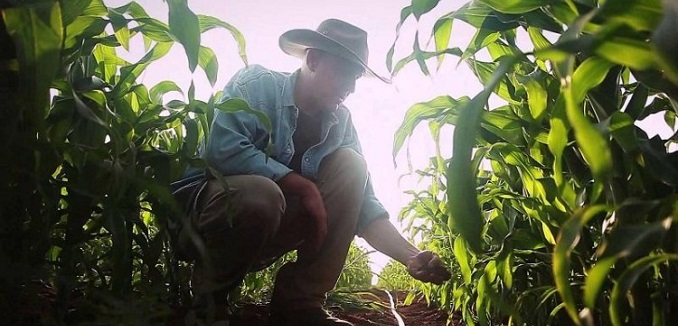Israel delivered thirteen advanced drip-irrigation systems to drought-stricken Paraguayan farmers on Wednesday.
The systems were provided by the Israeli irrigation company Netafim, a world pioneer in drip-irrigation technology. Drip-irrigation provides precisely the amount of water plants need, increasing crop yields while cutting water use by 75 percent or more. The technology was originally developed by Israeli kibbutznik Simcha Blass in the 1960s.
The delivery was handled by the Israeli embassy in Asuncion, Paraguay’s capital, and is part of Israel’s global effort to provide aid to developing countries. Israel also provided humanitarian aid to Paraguay last winter, when floods devastated parts of the nation. The handover ceremony made national news in Paraguay, a nation of around six million people. Paraguay also uses Israeli technology at its Itaipu Dam, the world’s second-largest hydroelectric power plant.
“Through this project, small farmers in San Pedro [province] have access for the first time to drip irrigation systems. Producers will use it for growing vegetables such as tomatoes, sweet peppers and carrots, and will be assisted by the federation,” the Israeli embassy said in a statement. The farmers are expected to spread knowledge of drip irrigation after seeing their own yields increase, hopefully triggering a revolution in water usage in Paraguayan agriculture.
Netafim’s drip-irrigation technology is increasingly being used by California farmers to help maintain crop yields in the drought-stricken state. California-based Lundberg Family Farms, one of the nation’s largest organic farms, signed a collaboration agreement with Netafim and Ben-Gurion University in March to help grow more rice with less water.
For more on Israel’s water innovation and its aid to drought-stricken countries, read How Israel is Solving the Global Water Crisis, written by Tower editor David Hazony for the October 2015 issue of The Tower Magazine.
[Photo: YouTube]




